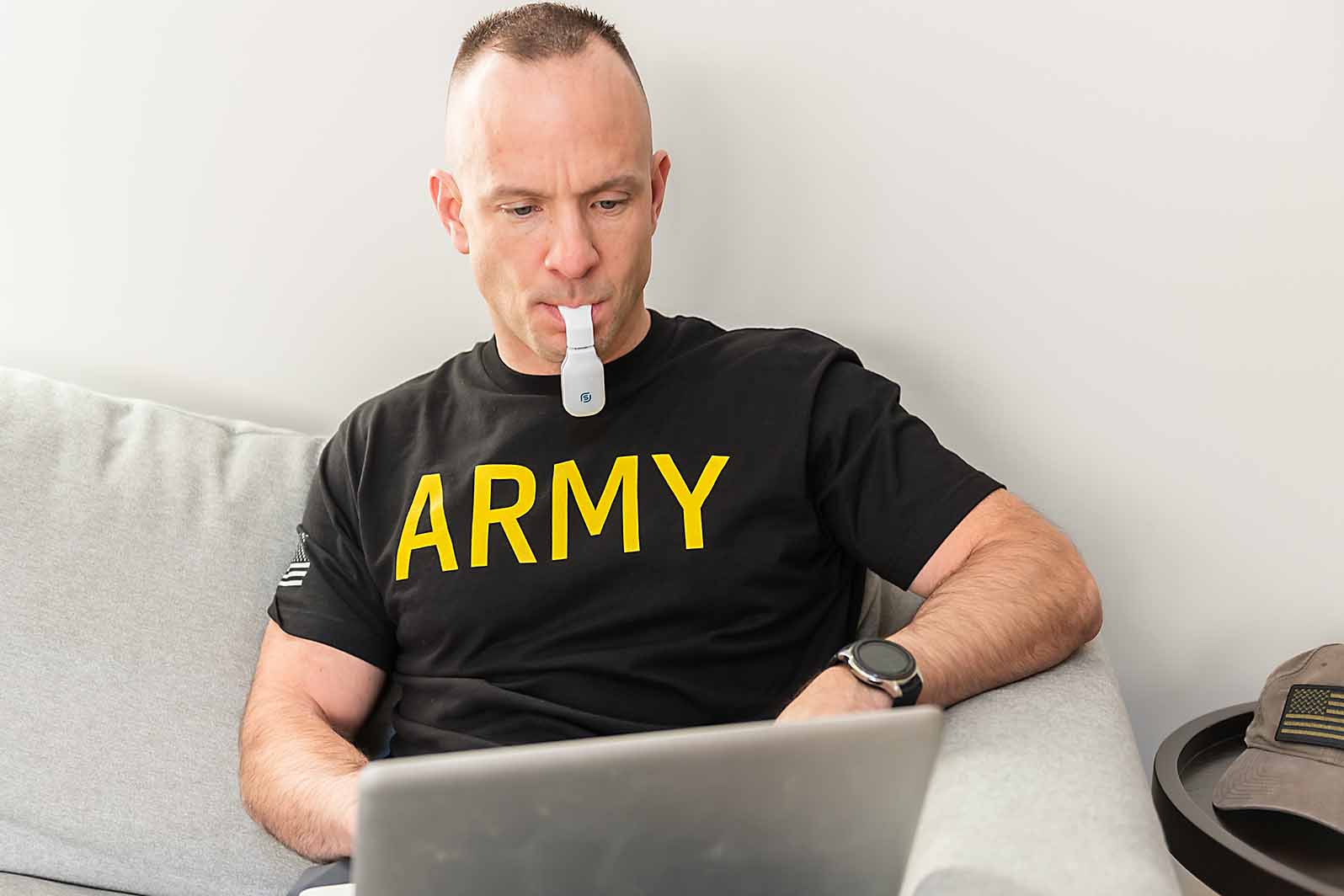Why Veterans Should Consider Alternatives to CPAP for Treating Sleep Apnea

|9th March 2022
For decades, military Veterans have been largely using CPAP machines to address their sleep apnea.
Combined with the news of equipment shortages and new technologies, Veterans are interested in learning about alternative ways to treat their sleep apnea.
Because we now have multiple ways to address sleep apnea, Veterans should understand all their treatment options and work with their VA healthcare provider to select the one that is best for them.
Multiple Forms of Sleep Apnea
There are different forms of sleep apnea, and the first step is for the Veteran to understand the form that they have, and the severity of it. VA doctors determine if a Veteran has sleep apnea – as well as the type and severity – during a sleep test.
The most common type of sleep-disordered breathing in military Veterans is obstructive sleep apnea (OSA), a condition that results in the upper airway muscles relaxing while sleeping. As a result, OSA narrows the airway, which creates pauses in the Veterans breathing cycle.
Veterans suffering from OSA can experience this pausing of the breathing cycle several times an hour.
Know Your Options
It’s important for Veterans to get informed on the options to treat their sleep apnea and find the best treatment for them.
When VA patients are diagnosed with sleep apnea, the VA doctors often give Veterans a series of options including CPAP devices, implants, and other, less-intrusive devices.
As one VA patient, Dustin, described the choices he was given after a sleep test where he was diagnosed with mild sleep apnea, “They gave me three options, surgery (implant), CPAP, or eXciteOSA®️ a device that would not only treat sleep apnea, but re-train my airway to improve my breathing during sleep.”
Dustin chose the eXciteOSA option. The results: “Little by little my airway health improved. By six weeks of treatment, I was able to sleep with no snoring or less frequent apnea. It worked for me.”
Bill, a sleep apnea patient, described his experience using eXciteOSA: “You don’t have to sleep with something all night.” And he quickly noticed an improvement: “Just after the six weeks of using the device each day for the recommended 20 minutes, I had excellent results. Two of the symptoms of OSA were gone. I no longer got tired in the afternoon and no more mild headaches when I woke up in the morning. I continued to use the eXciteOSA 3 or 4 times a week with the positive results as noted. My mild OSA is finally under control.” He added that “(An eXciteOSA) is lower cost and easier to use. It’s a low-risk first step, and if it does not work, I have not done anything irreversible.”
Find the Treatment that Works for You
There are several underlying causes of OSA, and you need to find the right treatment for you. Many Veterans diagnosed with OSA, like using eXciteOSA because they are not just treating a symptom and, instead, are treating one of the root causes.
As one sleep apnea patient, Piers, said, “Before I used it, my tongue was limp and flabby. Six weeks of using eXciteOSA and my tongue is a lean, mean fighting machine.”
In the end, each military Veteran should work with their VA provider to determine the best sleep apnea treatment option for them. A better night’s sleep rests on it.
|9th March 2022

